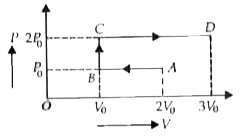(figure). Shows the P−V diagram of an ideal gas undergoing a change of state from A to B. Four different process I, II, III, IV, as shown in (figure) may lead to the same change of state.
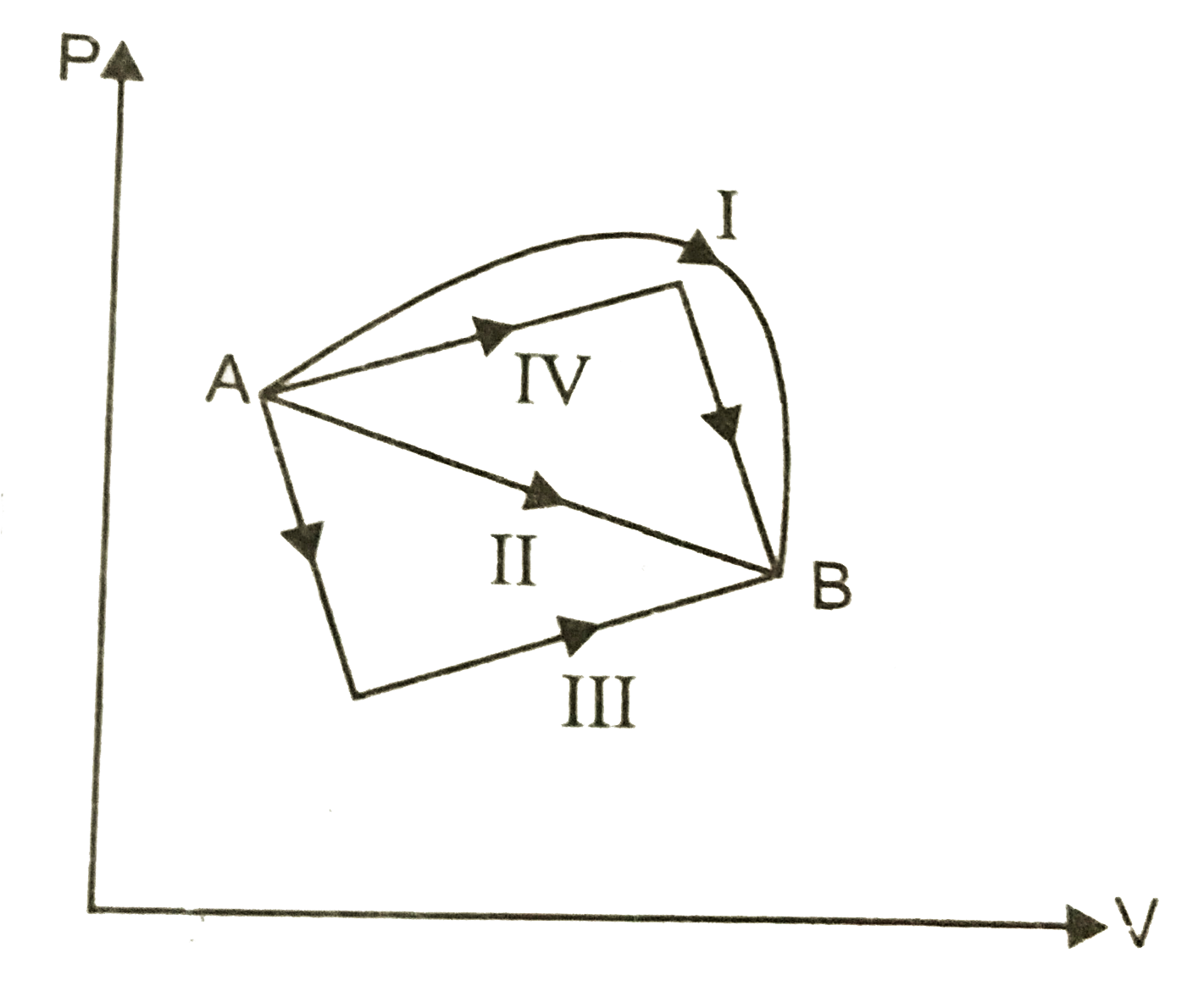
Change in internal energy is same in IV and III cases but not in I and II
Change in internal energy is same in all the four cases
Work done is maximum is Case I
Work done is minimum in case II
The correct Answer is:B, C
From the given initial state A to final state B change in internal energy is same in all the four Cases as it is independent of the path from A to B.
As work done = area under P-V curve therefore, work done is maximum in Case I.
Topper's Solved these Questions
- THERMODYNAMICS BOOK - CBSE COMPLEMENTARY MATERIALCHAPTER - THERMODYNAMICS EXERCISE - NUMERICALS
14 Videos
- ROTATIONAL MOTION BOOK - CBSE COMPLEMENTARY MATERIALCHAPTER - ROTATIONAL MOTION EXERCISE - MULTIPLE CHOICE QUESTIONS
20 Videos
- WORK, ENERGY AND POWERBOOK - CBSE COMPLEMENTARY MATERIALCHAPTER - WORK, ENERGY AND POWEREXERCISE - MCQ
20 Videos
Similar Questions
Knowledge Check
(figure). Shows the P−V diagram of an ideal gas undergoing a change of state from A to B. Four different process I, II, III, IV, as shown in (figure) may lead to the same change of state.
 AChange in internal energy is same in IV and III cases but not in I and IIBChange in internal energy is same in all the four casesCWork done is maximum is Case IDWork done is minimum in case II
AChange in internal energy is same in IV and III cases but not in I and IIBChange in internal energy is same in all the four casesCWork done is maximum is Case IDWork done is minimum in case IIFigure shows the p−V diagram of an ideal gas undergoing a change of state from A to B. Four different parts I, II, III and IV as shown in the figure may lead to the same change of state. ltBrgt
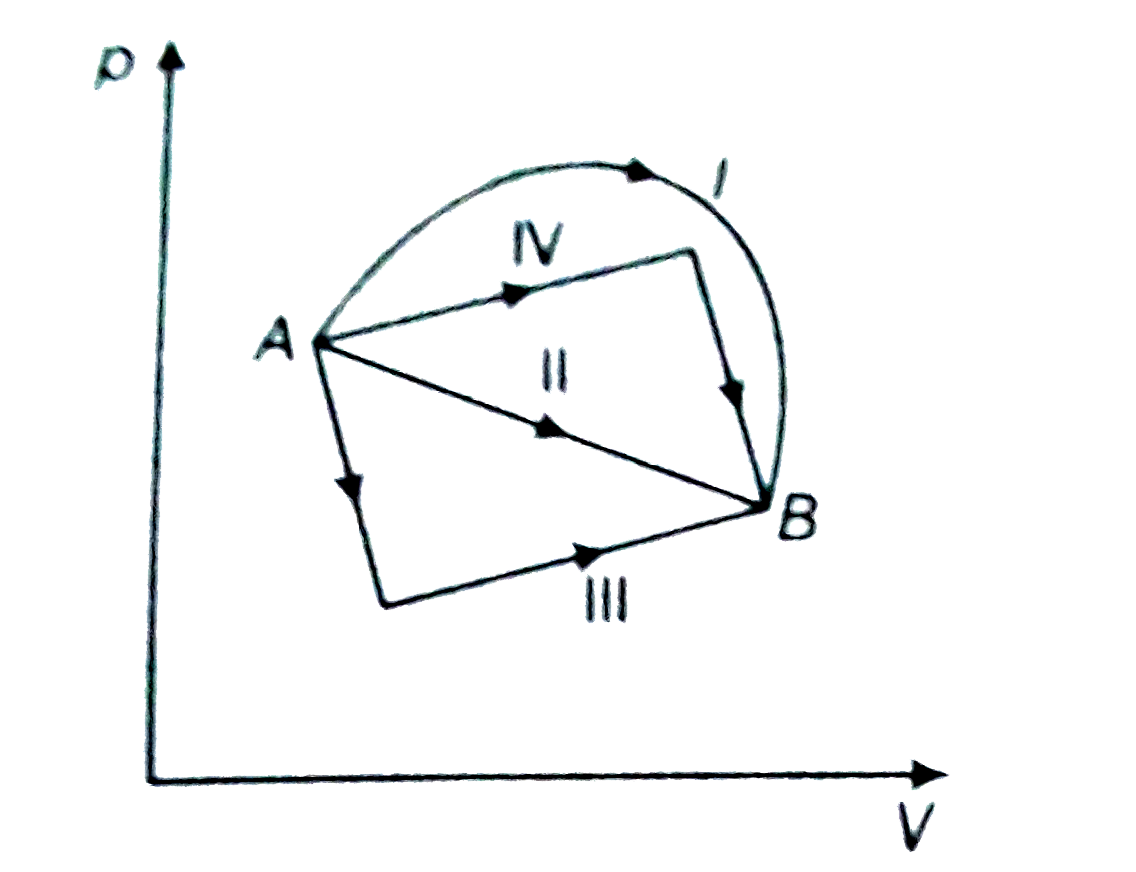 AChange in internal energy is same in IV and III cases, but not in I and IIBChange in internal energy is same in all the four casesCWork done is maximum in case IDWork done in minimum in case II
AChange in internal energy is same in IV and III cases, but not in I and IIBChange in internal energy is same in all the four casesCWork done is maximum in case IDWork done in minimum in case IIThe given P - V diagram is showing an ideal gas undergoing a change of state different paths I, II, III and IV that lead to the same change of state, then change in internal energy is
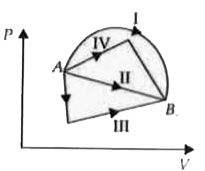 Amaximum along path 1Bmaximum and same along paths III and IVCminimum along path IIDsame in all the four cases
Amaximum along path 1Bmaximum and same along paths III and IVCminimum along path IIDsame in all the four cases
P−V diagram of an ideal gas is as shown in figure. Work done by the gas in process ABCD is
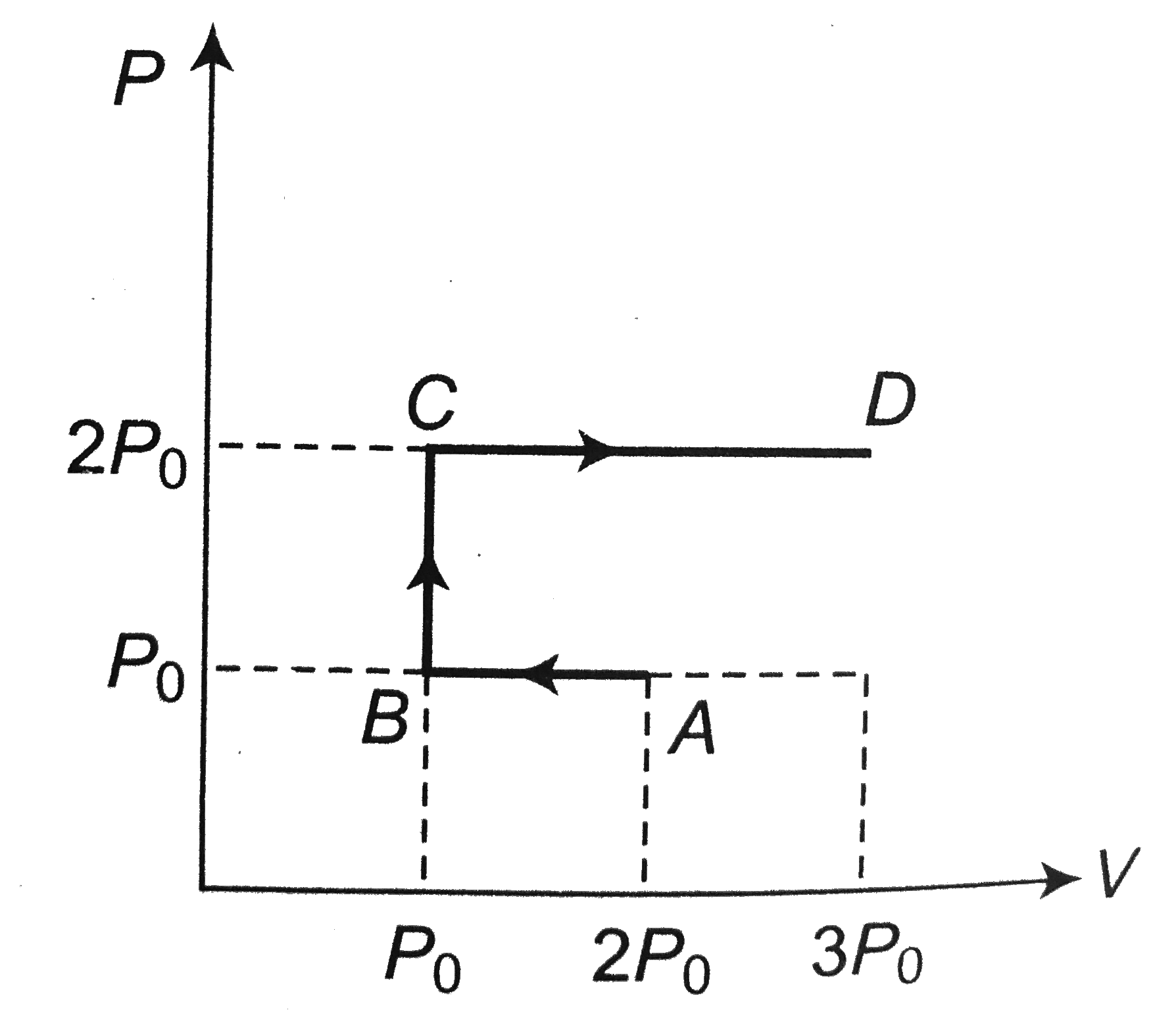
View SolutionA gas undergoes change in its state from position A to position B via three different path as shown in Fig. Select the correct alternatives :
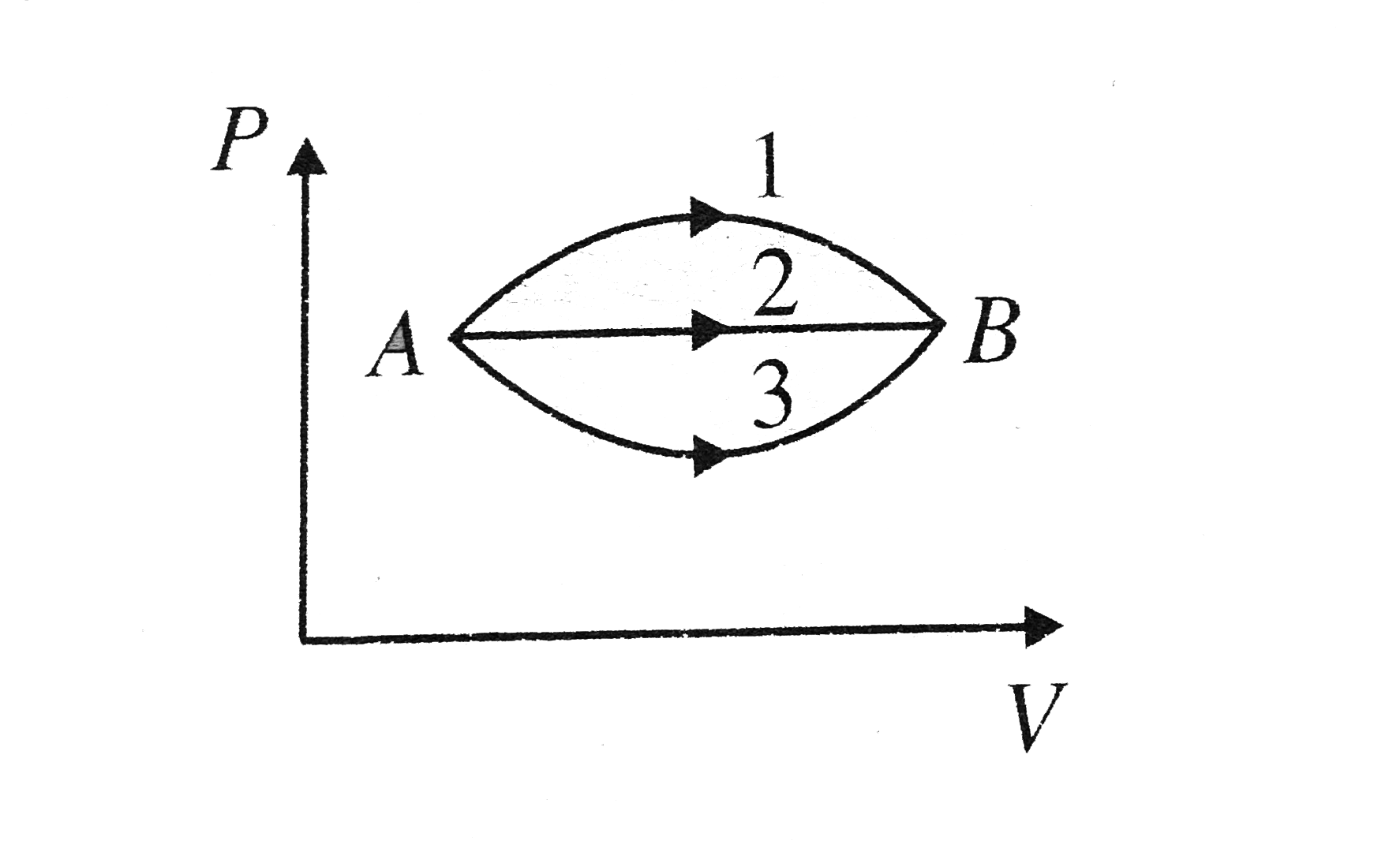
View SolutionOne mole of an ideal gas undergoes change of state from (4 L, 3 atm) to (6 L, 5 atm). If the change in internal energy is 45 L-atm then the change of enthalpy for the process is
View SolutionP−V diagram of an ideal gas is as shown in figure. Work done by the gas in process ABCD is

View SolutionOne mole of an ideal gas is taken from state A to state B by three different processes (a) ACB, (b) ADB and (c ) AEB as shown in the P−V diagram. The heat absorbed by the gas is
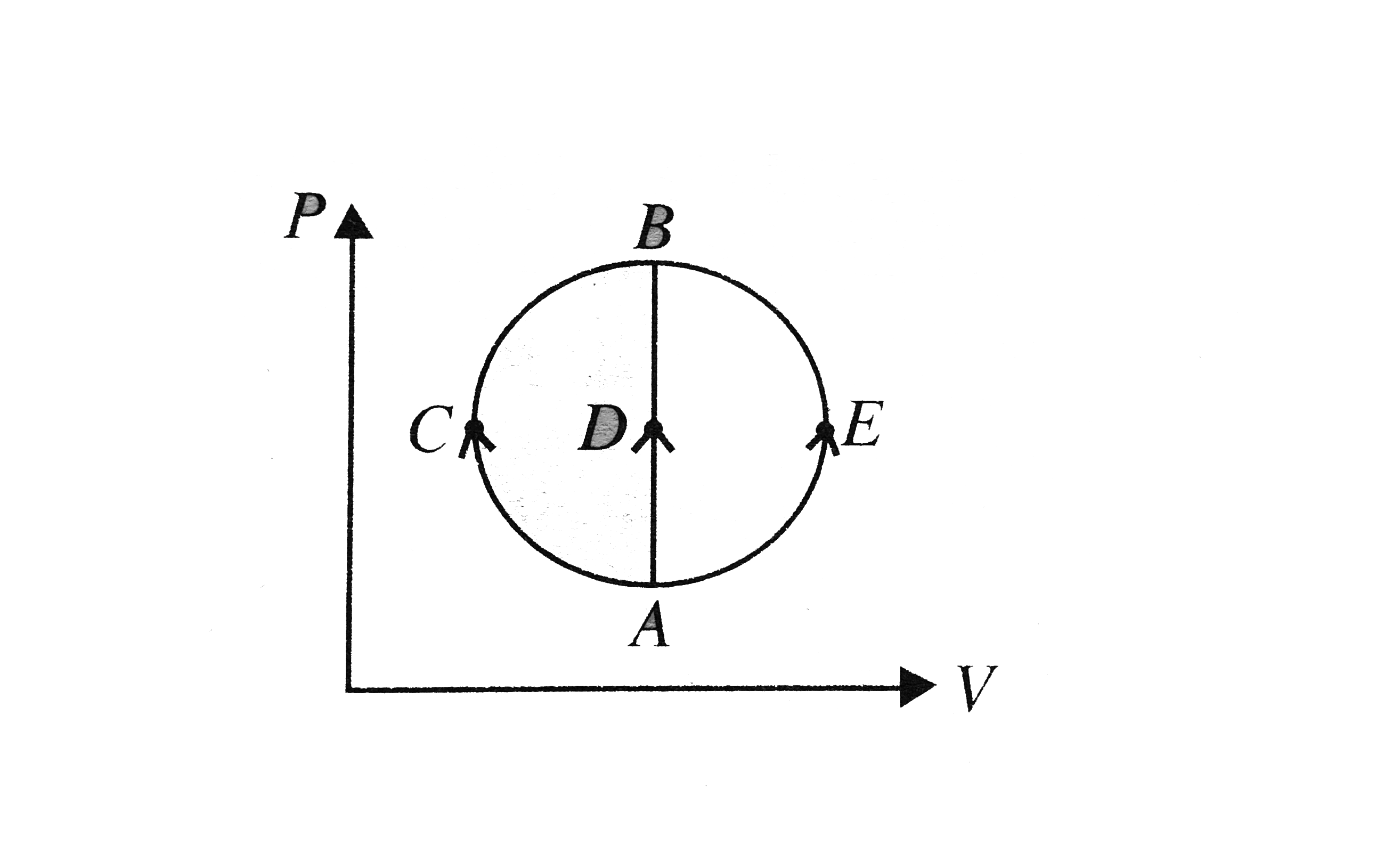
View Solution

